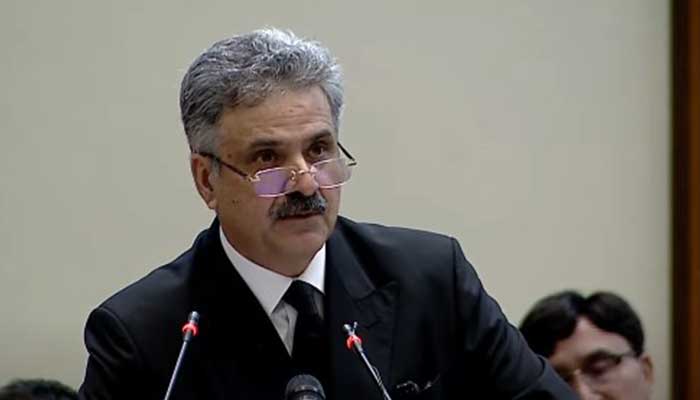Chief Justice of Pakistan (CJP) Justice Yahya Afridi has outlined a comprehensive vision for judicial reforms, emphasizing transparency, efficiency, and the integration of technology. Addressing the Judicial Conference in Islamabad, attended by judges of the Supreme Court, high courts, Attorney General Mansoor Usman Awan, and representatives of the bar, the chief justice announced several key initiatives aimed at reshaping the justice system.
National Judicial Policymaking Committee to Meet on October 17
Justice Afridi announced that the National Judicial Policymaking Committee (NJPC) would convene on October 17. Among the key issues on its agenda will be the pressing matter of missing persons, alongside other judicial challenges. The meeting reflects the judiciary’s effort to address longstanding concerns while engaging in broader reforms for institutional improvement.
Emphasis on Transparency and Speedy Justice
The chief justice stressed that transparency is the foundation of justice. He reiterated that timely disposal of cases must remain a central goal for the judiciary. “The purpose of the new judicial year’s ceremony is to review our performance,” he said, highlighting that such reviews had been a tradition since the 1970s and were resumed in 2004.
Upon assuming office, Justice Afridi initiated reforms based on five fundamental pillars, prioritizing technology, transparency, and strengthening legal frameworks. Case management systems have been introduced to ensure timely hearings and judgments, reducing backlogs that have burdened the courts for years.
Digital Transformation of the Supreme Court
Justice Afridi revealed that the Supreme Court is transitioning to a paperless system. He shared that case registration, records, and judgments are now available online, with e-services already launched. A facilitation centre for litigants is set to become fully functional from October 1.
He further disclosed that over 61,000 case files are being scanned, a project expected to be completed within six months. “Cases will be scheduled through artificial intelligence, though the judiciary is not yet fully ready for its immediate application,” he admitted. The gradual move toward digital integration marks a significant step for the judiciary in adopting modern technology.
Accountability and Case Management
The chief justice provided updates on the Supreme Judicial Council (SJC), which has decided 64 complaints against judges, while 72 remain under consideration and 65 are pending. He emphasized the principle of “first-come, first-served,” clarifying that cases will not be picked selectively.
Internal audits have also been completed, and draft rules have been circulated among judges for feedback. A full court meeting has been called to finalize these rules, ensuring inclusivity and accountability in the decision-making process.
Security and Administrative Reforms
Justice Afridi also addressed security arrangements, noting significant reductions in official protocol. He mentioned that his security vehicles had been reduced from nine to just two and that judges would require additional security only outside Islamabad. These steps, he explained, were part of efforts to streamline administrative practices and project judicial restraint.
Recognition from the Bar and Government
During the conference, Pakistan Bar Council Vice Chairman Tahir Nasrullah commended the chief justice for initiatives that benefit litigants, such as video link hearings, provision of internet and solar facilities in remote areas, and reduced case pendency. He expressed hope that district-level judiciary would also experience similar improvements.
Supreme Court Bar Association President Rauf Atta praised Justice Afridi for his forward-looking vision, pointing to electronic filing, video hearings, and facilitation centres as transformative achievements. He, however, raised concerns about scheduling delays and urged further measures to ease access for litigants.
Attorney General Mansoor Usman Awan echoed these sentiments, affirming that the judiciary’s adherence to the Constitution and law underpins transparency. He noted a significant reduction in pending cases compared to last year and supported the expanded use of artificial intelligence to strengthen judicial efficiency.
